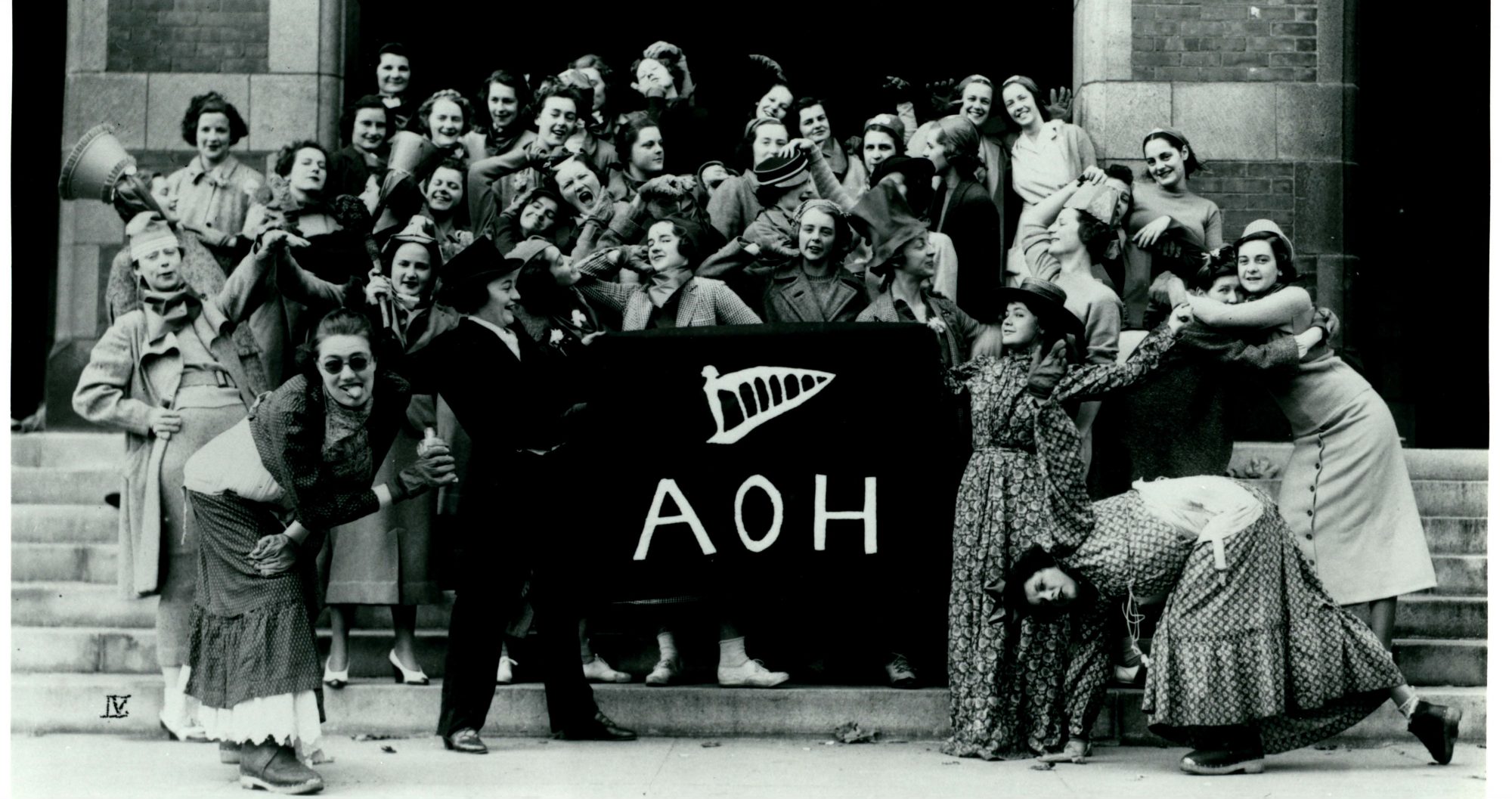It is difficult to nail down a definition exactly of what a secret society is because as Arkon Daraul states, secret societies vary so much that there cannot be a set of qualifications that will apply equally to all societies.[1] As he points out, some secret societies are not even completely secret.[2] Mackenzie Crane articulates that collegiate secret societies are “intentional, persistent,” and exclusive groups who keep the details of their membership and the group known only to other members. She adds, “these groups are characterized by a profound confidence among members that secret proceedings will be fiercely guarded from those outside the group.”[3]
Secrecy is important to college students, as shown in Jennifer Domagal’s “Keeping Secrets: Student Secret Societies in Historical Context.” She cites Stanton K. Tefft that secrecy gives students “control and autonomy over their surroundings and are able to create such groups even in light of direct opposition.”[4] But, Crane also points out that different collegiate secret societies maintain different levels of secrecy ranging from those who hold events on campus and wear special clothing or accessories to mark themselves as members, swearing pledges to silence until they have become full members, and those “that attempt to conceal their existence entirely.”[5]
Footnotes
[1] Daraul, A. (1961). Secret societies yesterday and today. London: The Octagon Press Ltd.9 in Jennifer Domagal, “Keeping Secrets: Student Secret Societies in Historical Context,” The Vermont Connection 23, no. 1 (2002): 1, https://scholarworks.uvm.edu/tvc/vol23/iss1/6/?utm_source=scholarworks.uvm.edu%2Ftvc%2Fvol23%2Fiss1%2F6&utm_medium=PDF&utm_campaign=PDFCoverPages.
[2] Daraul, A. (1961). Secret societies yesterday and today. London: The Octagon Press Ltd.9 in Jennifer Domagal, “Keeping Secrets: Student Secret Societies in Historical Context,” The Vermont Connection 23, no. 1 (2002): 1, https://scholarworks.uvm.edu/tvc/vol23/iss1/6/?utm_source=scholarworks.uvm.edu%2Ftvc%2Fvol23%2Fiss1%2F6&utm_medium=PDF&utm_campaign=PDFCoverPages.
[3] Mackenzie Crane, “The Tap: An Examination of the Controversy of Secret Societies on College Campuses” (M.Ed., United States — South Carolina, University of South Carolina), 1, accessed February 23, 2022, https://www.proquest.com/docview/1686533113/abstract/D4670441DD84592PQ/1.
[4] Tefft, S.K. (1980). Secrecy, a cross-cultural perspective. New York: Human Sciences Press, Inc (321) in Jennifer Domagal, “Keeping Secrets: Student Secret Societies in Historical Context,” The Vermont Connection 23, no. 1 (2002): https://scholarworks.uvm.edu/tvc/vol23/iss1/6/?utm_source=scholarworks.uvm.edu%2Ftvc%2Fvol23%2Fiss1%2F6&utm_medium=PDF&utm_campaign=PDFCoverPages.
[5] Crane, “The Tap,” 2.
